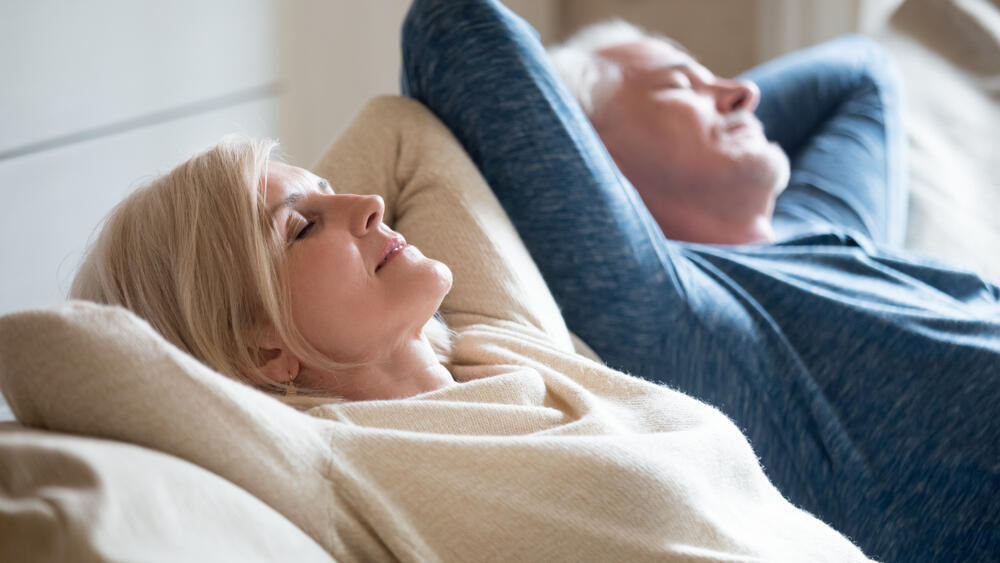Getting your Trinity Audio player ready...
Embarrassed to tell your friends that you dozed off after lunch? Now you have scientific justification for napping in the middle of the day. A recent study conducted by the University College London sheds new light on the benefits of naps, which are often associated with laziness or lack of productivity.
Read more:
The findings reveal that the brains of those who were in the habit of taking naps in the middle of the day, shrink less over the years and thus remained larger in old age compared to those who did not nap.
"This is the first study that shows that the brain shrinks less," Dr. Uri Elkan, a head and neck surgery specialist, and expert in sleep problems at the Beilinson Hospital, said in an interview with Ynet Radio. "Our brains naturally shrink as we age, and the research shows that people who take naps during the day, experience slightly less brain shrinkage."
The study found a 15-millimeter increase in brain volume among those who were in the habit of taking naps. "This growth is equivalent to delaying aging by three to six years," explained Dr. Elkan. "This suggests that napping may have a protective effect against cognitive decline and neurodegenerative diseases, potentially promoting healthy brain aging."
According to Elkan additional benefits of midday napping are:
1 - Enhancing cognitive function and boosting creativity
A nap during the day can provide significant cognitive enhancement for the remainder of the day, improving memory, concentration, creativity and overall mental performance. Studies have shown that a short period of rest can help process newly acquired information and enhance learning abilities. A well-rested and alert brain is more attentive, responsive, and better equipped to handle complex tasks. This restorative rest contributes to increased productivity and allows individuals to maintain optimal performance throughout the day.
2 - Relieves stress and improves overall mood
Napping has been proven to reduce stress levels and improve emotional well-being. When we suffer from a lack of sleep, our bodies release higher levels of stress hormones, which can negatively impact our mood. By taking a nap, we give our bodies a chance to relax and restore balance. Napping stimulates the release of endorphins, which are natural mood boosters in our body, leading to a reduction in anxiety, improved emotional stability, and a much greater sense of well-being.
"We all experience fatigue, more or less, between one to three, then we have a decrease in the alertness hormone. It seems that we are biologically designed for midday napping, so it's easier for us to fall asleep during those hours"
3 - Improvement in heart health and cardiovascular functional
Studies have exhibited a correlation between napping twice a week and a reduced risk of heart disease and cardiovascular problems. A study published in the journal "Heart" demonstrated that individuals who nap occasionally or regularly have a lower prevalence of heart-related issues. Napping has been linked to lower blood pressure, reduced inflammation, and improved cardiovascular function. These findings highlight how a simple and enjoyable activity like napping can have a profound impact on our long-term heart health.
Dr. Elkan, how long of a nap are we talking about?
"Up to 30-20 minutes. We know that a short nap provides all the benefits we discussed, and when we enter deeper sleep, there are also disadvantages. It is more difficult to wake up from deep sleep, and we wake up slightly more irritable sleepy, and groggy, and it takes us a bit longer to be fully awake. If we fall into a deep sleep during we have a greater chance of experiencing difficulty falling asleep at night."
20 minutes is a window of time that even working people can allow themselves during their lunch break.
"Right, and even now, after the COVID-19 pandemic, with more people working from home, I hear from my patients that more people take a break to nap. workers in hi-tech, athletes, Air Force servicemen, and others, have made naps part of their daily routine."
Isn't it frustrating? Isn't it too little time?
"No, if that's what you're used to and it works well for you. There's even something called a coffee nap, where you drink a shot of coffee, go to sleep and experience the peak effect of the caffeine just as you wake up, making you feel alert and good. That's also an option."
Most people don't know how to just lay back and fall asleep.
"You need to choose the right time. We all experience fatigue, more or less, between one to three, then we have a decrease in the alertness hormone. It seems that we are biologically designed for midday naps, so it's easier for us to fall asleep during those hours.
"You also need a comfortable place. If you try to nap in front of the computer, sitting and resting your head on the desk, it will be more difficult for you to fall asleep. But if you have suitable conditions - a dark, comfortable bead and pleasant temperature conditions - the likelihood of falling asleep is higher. And of course, the more you practice, the higher your chances of falling asleep quickly."
And how is it for you?
"Unfortunately, I can only get naps on weekends."




